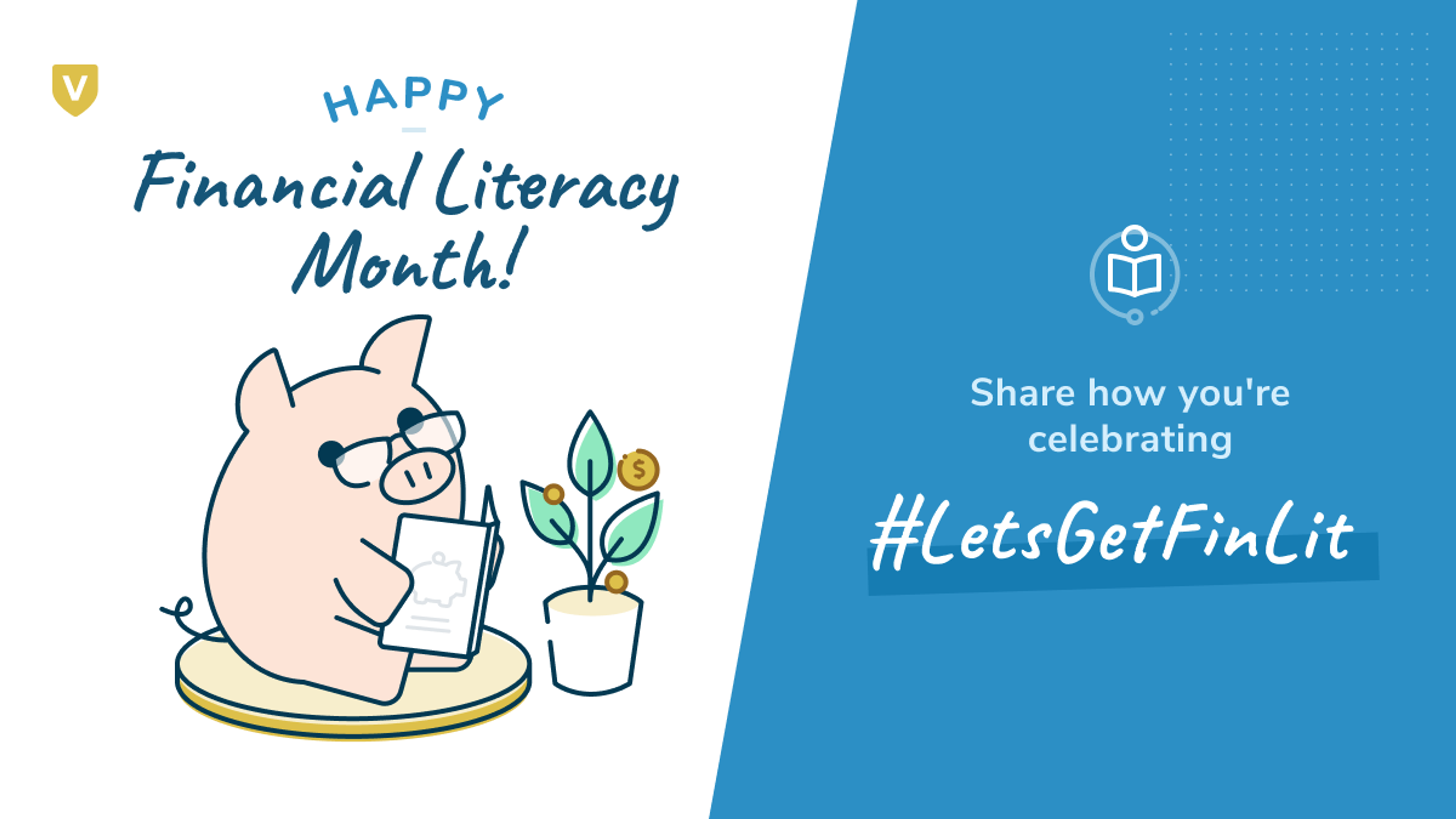5 Easy Ways to Improve Financial Literacy in Your Community

April is National Financial Literacy Month, and according to the stats, most of us could use a refresher in financial education. A study conducted by FINRA Investor Education Foundation revealed that only 34% of Americans could ace a quiz on basic financial literacy topics such as interest rates, inflation, and mortgage rates. The lack of financial literacy can lead to devastating consequences. In fact, 56% of Americans carry a balance on all active credit card accounts, and a quarter have nothing saved for retirement.
We believe that anyone can be an advocate for the cause, which is why we’d like to challenge YOU to join us by making a change with one (or many!) of these five simple ways:
- Sign a petition. A principal factor contributing to our nation’s financial illiteracy is the lack of prevalent financial education in schools. In fact, less than half of U.S. states require high school students to take a personal finance course. To get involved, we recommend checking out the National Financial Educators Council’s petition for mandated comprehensive financial education in all U.S. public schools.
- Donate. There are many national organizations dedicated to advancing youth financial literacy, including Jump$tart Coalition for Personal Financial Literacy, W!se, and Council for Economic Education. If you want to go more local, consider Donors Choose to donate to a specific initiative near you.
- Support a school program. Whether you’re an educator, parent, or student, every member of the community plays a vital role in expanding financial literacy. To make a difference in the financial education taking place at–or missing from–a local school, check out Jump$tart’s Check Your School Campaign.
- Educate a young person. Financial Literacy Month was first and foremost created to educate our youth, so a great way to honor this tradition is to commit to teaching at least one young person in your life about personal finance! Here are some resources to get you started:
- 9 Children’s Books About Money: This list features engaging books for educating younger kids about money.
- Discovery Education’s Cha-Ching Money Smart Kids: This Discovery Education program has short, catchy videos and accompanying activities for students in grades K-6.
- Practical Money Skills: Visa’s program provides people of all ages with resources to help improve their money management skills. We especially love their immersive games that test your financial mastery, including The Payoff and Financial Football.
- The Stock Market Game: This free online simulation explores the fundamentals of personal finance and investing.
- Educate yourself. While it’s great to share your financial knowledge with younger generations, it’s also important to continuously expand upon your own. Keep up with the latest industry and market trends by checking out one of the podcasts below, or, better yet, share your favorite financial resources with your network.
- Animal Spirits: Ritholtz Wealth Management’s Ben Carlson, CFA, and Michael Batnick, CFA, take an intimate, engaging approach to finance, discussing topics ranging from their personal experiences in financial markets, parenting, and asset management business, their favorite TV shows, and more.
- The Meb Faber Show: Drawing from his own experience as the Chief Investment Officer of Cambria Investment Management, Meb Faber delves into the art of investing and provides insights into global equity, bond, and real asset markets.
- The Indicator from Planet Money: Hosted by National Public Radio, this daily podcast dives into the latest economic news, helping you to make sense of what’s happening in the markets today.
- Financial Advisor Success: This podcast tackles practice management and development through interviews with financial advisors and leading industry consultants who share their success stories and insights.
- Standard Deviations: Each week, psychologist Dr. Daniel Crosby chats with guests from the finance industry and holds discussions that approach money through a psychological lens.
It’s never too early (or too late) to start making an impact on financial illiteracy rates. Even a small step now can pay huge dividends in the future for your family, your community, and even yourself.
Tell us how you are joining in by using the hashtag #LetsGetFinLit.